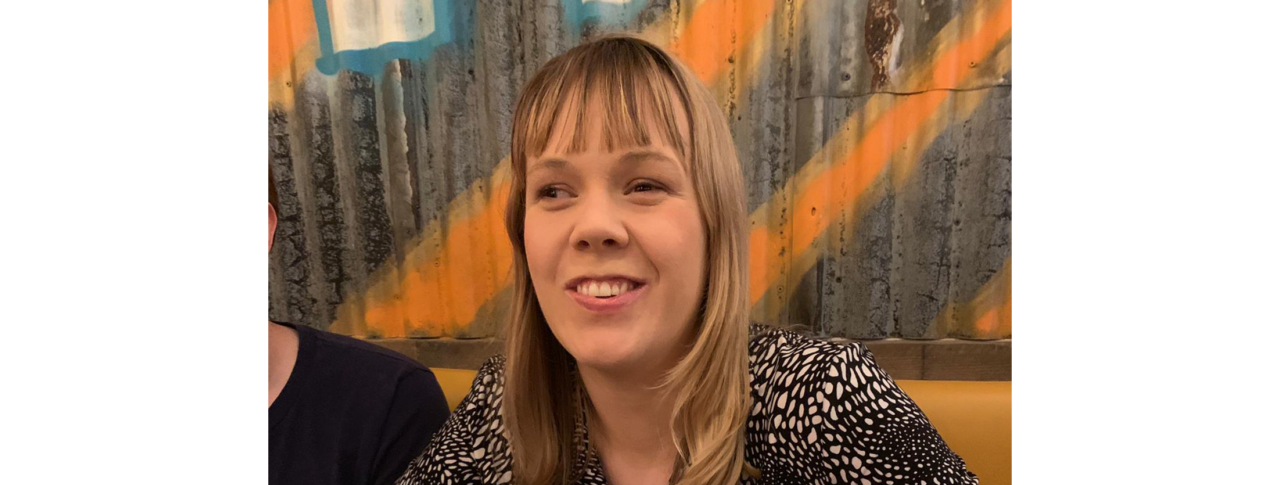My university experience as a visually impaired student
Natalie recently completed her degree in Sport and Exercise Science at the University of Wolverhampton —she has since become a member of Black Country Sight Loss Council. We caught up with Natalie ahead of freshers’ week to learn more about her university experience and her plans to advocate for visually impaired students as a Black Country Sight Loss Council member.
As you know, freshers’ week is around the corner. If you were to cast your mind back, what was the beginning of your student journey like for you?
I remember feeling excited. It wasn’t as overwhelming as I thought it would be. I stayed in university accommodation. It was just so convenient to be on the campus, not having to worry about where I was going and finding my way to lectures.
I didn’t get massively involved in much on the social side of things—I guess this was because there wasn’t much promotion of social things that I could see or find. Most things were advertised on flyers and leaflets but if you can’t read it, then you’re not going to know what’s around!
How accessible was your course?
I had a notetaker in my lectures, but with my degree being reasonably practical, many learning materials relied on visual information, which made things difficult. Many of my lecturers were quite helpful. When they had the chance, they would come around and explain what a diagram was showing. My note-taker could describe things, but they wouldn’t necessarily know what they were describing because they didn’t have any knowledge or understanding of the subject. I think it would have been better if I had had one steady notetaker throughout the year. Many of the lecturers would give me my learning materials ahead of time which was also helpful.
How and why did you get involved with Black Country Sight Loss Council?
I joined Black Country Sight Loss Council because I thought it would be an excellent opportunity to gain some work experience following my degree.
I’m excited about raising awareness of visual impairment generally, to improve all aspects of a visually impaired person’s life. I’m involved with the #WholeExperience project with SLCs. This looks to improve the social side of the university experience. Many visually impaired students experience isolation and feel segregated
Did you feel that way at all?
My university did put me in a flat with three other visually impaired people. It probably had some negative impact on all of us and our ability to integrate with the rest of the student body. It meant we weren’t mixing with everybody. A few sighted students were there also, who didn’t get too involved because they weren’t sure what to do.
I believe the education side of university has improved in terms of accessibility, but the social aspects of university are often forgotten.
What impression do you think the general public has of blind and partially sighted people?
I would say they have a very black and white, simplistic view of disability. It’s almost like when people think of disability, the literal icon of a wheelchair comes to mind and nothing else.
Disability is a vast and extensive spectrum, and even people with the same disability can experience it differently!
Where can universities make a difference?
Tiny things can make a big difference. For instance, I’d often receive emails with flyer attachments in a PDF format. If I’m on my phone, my phone’s not going to read that to me. Screen readers do not work very well with PDF documents. If that information had been sent to me as text within the email, or as a Word document, it would have changed my ability to access it. And then potentially, I would have been able to find out and go to an event or be involved in a society or something!
What are you hoping to work on with Black Country Sight Loss Council?
As an SLC member, I am excited about bringing suggestions to universities to help them understand the small changes they could make to improve someone’s university experience.
I’m excited to be in a position where I can affect change, apply my knowledge from my degree and enhance the experience of visually impaired students.
Feeling inspired?
If you want to join Sight Loss Councils and help us influence positive change, we have SLCs in a number of regions throughout the country. Apply to volunteer for a council near you.
Publication date: 23 September 2021

